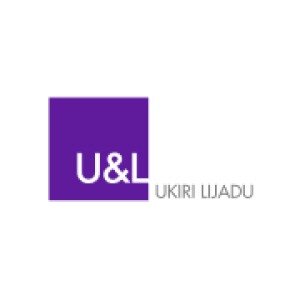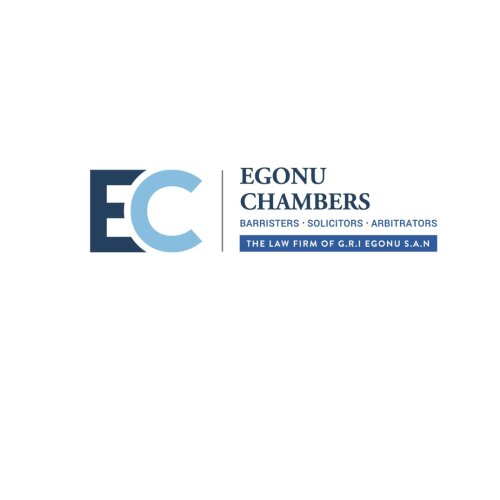Best Investment Lawyers in Maitama
Share your needs with us, get contacted by law firms.
Free. Takes 2 min.
List of the best lawyers in Maitama, Nigeria
About Investment Law in Maitama, Nigeria
Maitama, a district and integral part of Abuja, the capital city of Nigeria, is an affluent area that has seen significant investment activity. Investment laws in Maitama govern a wide range of sectors including real estate, agriculture, and service industries. The legal framework is supported by federal laws, such as the Investment and Securities Act, and local regulations that ensure a robust environment for investors. These laws aim to protect investor rights while fostering growth and development.
Why You May Need a Lawyer
Investing in Maitama can be both lucrative and complex, given the varied regulations and the dynamic economic environment. A lawyer specializing in investment law can provide invaluable assistance in numerous scenarios, including:
- Understanding regulatory requirements and compliance.
- Drafting and reviewing investment agreements and contracts.
- Navigating partnerships and joint ventures.
- Advising on tax implications and structuring investments in a tax-efficient manner.
- Handling disputes or litigation related to investment issues.
Local Laws Overview
The investment landscape in Maitama is primarily governed by the following legal frameworks:
- Investment and Securities Act: This key piece of legislation provides the basis for the regulation of investments and securities transactions, ensuring that investor rights are protected.
- Nigerian Investment Promotion Commission (NIPC) Act: Encourages investment in Nigeria through facilitation and appropriate policy measures.
- Local Land Use Act: Especially pertinent for real estate investments, this act regulates the ownership and use of land in Nigeria.
- Corporate Affairs Commission (CAC) regulations: Govern the registration and management of companies within Maitama and Nigeria at large.
- Tax Laws: Include Federal Inland Revenue Service (FIRS) guidelines, important for understanding corporate taxes and obligations in Nigeria.
Frequently Asked Questions
What types of investments are most common in Maitama?
Common investments include real estate, hospitality, retail businesses, and government bonds.
Are there incentives for foreign investors in Maitama?
Yes, the Nigerian Investment Promotion Commission offers incentives such as tax holidays and duty-free importation for specific investments.
What legal protections are available for investors?
The Investment and Securities Act provides comprehensive protections, including dispute resolution mechanisms and protection against expropriation.
Do I need to register my investment business locally?
Yes, businesses must be registered with the Corporate Affairs Commission and obtain relevant operational permits.
How does the land tenure system work in Maitama?
Land in Maitama is governed by the Land Use Act, which requires obtaining a Certificate of Occupancy from the local government for any land use.
What are the tax implications of investing in Maitama?
Investors must be aware of federal and state taxes, including Corporate Income Tax and Value Added Tax (VAT).
How do I resolve investment disputes in Maitama?
Disputes can be resolved through arbitration, which is often preferred for its efficiency, or through the local courts.
Is regulatory compliance essential for my investment business?
Absolutely, compliance is critical to avoid penalties and ensure smooth business operations.
Can I repatriate profits from my investment in Maitama?
Yes, profits can be repatriated, provided you comply with the foreign exchange regulations set by the Central Bank of Nigeria.
How can a lawyer assist me with investment processes in Maitama?
Lawyers can provide expertise in navigating the legal landscape, ensuring compliance, managing risks, and handling any legal disputes.
Additional Resources
For more in-depth information, consider reaching out to the following resources:
- Nigerian Investment Promotion Commission (NIPC): Offers detailed guidelines and incentives for investors.
- Corporate Affairs Commission (CAC): Provides resources for business registration and compliance.
- Federal Inland Revenue Service (FIRS): Essential for understanding tax obligations.
- Ministry of Industry, Trade, and Investment: Advises on policies and initiatives for economic development.
Next Steps
If you are considering seeking legal advice for investment in Maitama, it is advisable to start by consulting with a reputable law firm that specializes in investment law. Begin by preparing a detailed outline of your investment plans and objectives. Then schedule consultations to explore how a legal expert can facilitate your investment process, ensuring all regulatory and compliance requirements are met. A proactive approach will equip you to make informed decisions and safeguard your investment interests in Maitama, Nigeria.
Lawzana helps you find the best lawyers and law firms in Maitama through a curated and pre-screened list of qualified legal professionals. Our platform offers rankings and detailed profiles of attorneys and law firms, allowing you to compare based on practice areas, including Investment, experience, and client feedback.
Each profile includes a description of the firm's areas of practice, client reviews, team members and partners, year of establishment, spoken languages, office locations, contact information, social media presence, and any published articles or resources. Most firms on our platform speak English and are experienced in both local and international legal matters.
Get a quote from top-rated law firms in Maitama, Nigeria — quickly, securely, and without unnecessary hassle.
Disclaimer:
The information provided on this page is for general informational purposes only and does not constitute legal advice. While we strive to ensure the accuracy and relevance of the content, legal information may change over time, and interpretations of the law can vary. You should always consult with a qualified legal professional for advice specific to your situation.
We disclaim all liability for actions taken or not taken based on the content of this page. If you believe any information is incorrect or outdated, please contact us, and we will review and update it where appropriate.









